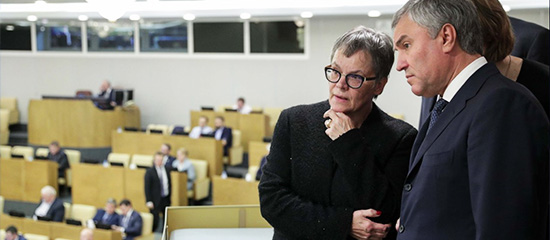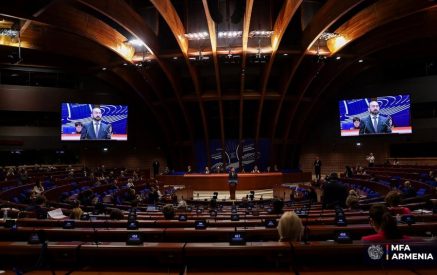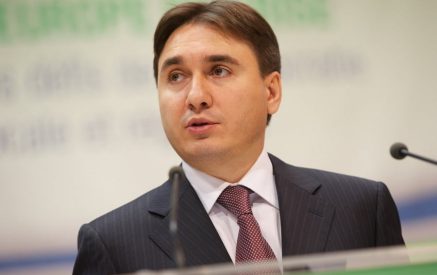“What place do we want for the Council of Europe in the European architecture? How can we better preserve the values that are the basis of our ‘Common Home’? I am deeply convinced that it is more important than ever to go back to our basics,” said PACE President Liliane Maury Pasquier, addressing students of the Moscow Institute of International Relations at the end of her working visit to Russia.
“We must reaffirm our attachment to the Statute of the Council of Europe and to its original aim, that of preserving peace and of achieving a closer union between states. We must strengthen our commitment to the European Convention on Human Rights by executing the Court’s judgments. We must breathe new life into our institutional co-operation mechanisms, by strengthening the interaction between the Committee of Ministers and the Parliamentary Assembly. Finally, when confronted with drift, we must take the path of dialogue and co-operation,” she added.
During her stay in Moscow, Liliane Maury Pasquier met with the President of the State Duma Vyacheslav Volodin, the President of the Federation Council Valentina Matvienko, and the Commissioner for Human Rights of the Russian Federation Tatiana Moskalkova, as well as representatives of civil society. During these meetings, she discussed co-operation between Russia and the Council of Europe, in particular the implementation at national level of the European Convention on Human Rights, the new joint procedure between the Committee of Ministers and the Assembly in the event of a serious breach by a member State of its statutory obligations, as well as the strengthening of Russian legislation in the field of preventing and combating violence against women and domestic violence. In addition, she addressed the participants of the 3rd International Conference on “Human rights protection in Eurasia: exchange of best practice among Ombudspersons”.
The PACE President underlined the importance and impact of Russia’s co-operation with the Council of Europe. “Like any member State, Russia has brought to the Council of Europe its legal practice but also new initiatives, notably in the field of legal co-operation. Russian legislation and the case-law of national courts have also been enriched by the standards of the ECHR and the case-law of the European Court of Human Rights. Co-operation with the Assembly on matters of common interest, as well as on the issue of human rights in Russia, is also very important, as demonstrated by my discussions with civil society. Of course, there are still areas in which progress must be made in order to fully implement the standards of the ECHR and the judgments of the European Court. In addition, the conflict in Ukraine also represents a major challenge for our continent as well as for the protection of human rights. In this context, the Assembly will continue to defend its positions, in accordance with international law, while encouraging all actions in favour of peace and co-operation in Europe. The main thing is to work together in a spirit of dialogue,” underlined the PACE President.
Read also
The issue of combating violence against women and domestic violence was one of the transversal subjects of the meetings. “Violence is simply intolerable in our societies and no culture, no religion, no tradition can justify it. All women, all men and all children must be able to live, develop and thrive in an environment free from violence. It is clear that Russian legislation must be changed to create legal mechanisms to combat and prevent violence, as well as to protect the victims. The Council of Europe is ready to co-operate and provide expertise and examples of good practice in other Council of Europe countries,” concluded the President.
PACE























































